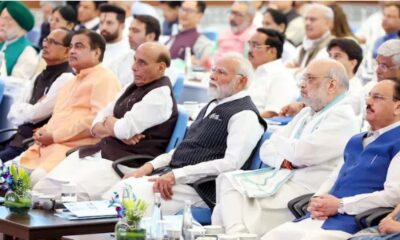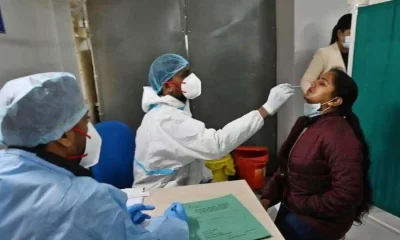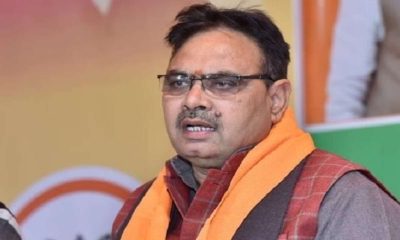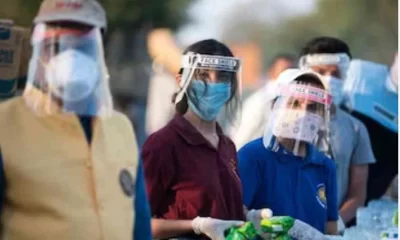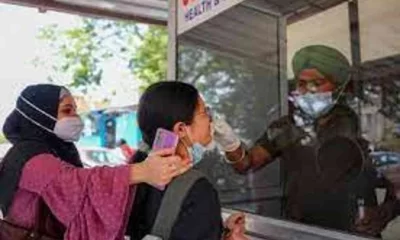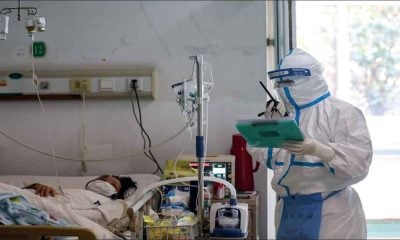India’s Coronavirus Positive patients have gone beyond 17,000. Lockdown in some areas is relaxed from Monday. Will that lead to a spike in the Corona Positive figures? APN’s popular debate Mudda discussed the issue. Anchorperson Neha Dubey spoke to panelists including Dr Bobby Malhotra of Sir Ganga Ram Hospital, cancer specialist Dr Anshuman Kumar, DCP (retd) Delhi Police, SN Rao, and noted scribe Sunil Kaushik.
Kaushik said: “Relaxation has been ordered in districts which are corona-free, and this is especially in view of essential maintenance services, while observing precautionary measures like social distancing, handwashing and so on. Some amount of risk needs to be taken to restart the economic processes and for maintenance and essential services like cleaning of drains etc.”
Dr Malhotra said: “Corona symptoms take 14 days to show up, and it is expected that the cycle must have run during the lockdown period. In some areas, there have been no reported cases and they can be systematically opened for work. I am of the belief that some relaxation can be handed out to areas that have been corona-free.”
Rao said: “This is a sensitive matter. Some kind of balance is needed, especially where the risk is lesser.”
Kaushik said: “There is a guideline to get work done from labour. Supply chains need to get activated, because the stocks of essential items usually do not last for more than three months. Government does not want to create panic, but nearly 50 percent of the stock must have got exhausted by now. So a certain amount of risk may be taken at this stage.”
Neha wanted to know the reason for the urgency in ordering relaxation in agriculture, engineering sectors, etc?
Kaushik said: “In essential sectors, risk needs to be taken. What if people die of hunger? So, a gradual opening of sectors is the right way to move forward.”
Dr Malhotra said: “Social behaviour post-lockdown is going to be vastly different. People now realise that social distancing is essential. Such self-discipline and behavioural changes are the need of the hour. This kind of change will be needed for the entire year; it’s not a short-term adjustment that is required. We are dealing with a pandemic, so life, livelihoods and essential services… all are needed.”
Rao said: “Preventive measures like wearing masks, social distancing, handwashing will need to be followed, for the post lockdown period to be a success. More testing should be seen in the coming weeks.”
Dr Malhotra pointed out: “Coronavirus spreads through droplet contact, many villages of the country are relatively insulated.”
Neha wanted to know how to ensure that there has been no contact at all with Covid-infected people?
Dr Malhotra added: “Some kind of perspective and balance are needed. We are a hugely populated nation. Testing gets evolved over time. Testing kits need to be imported. Increased testing has been ordered globally in places that have witnessed greater flow of foreign visitors. Every day, the plans are evolving, and that is for the comfort of the people of the country.”
Dr Kumar said: “Lockdown helps in mitigating the crisis. Testing has gone up gradually. Lockdown has helped in isolating hotspots. Incubation period needs to be observed to ensure no newer cases emerge. It’s simply an assumption theory that where new cases do not show up, those areas are corona-free.”
Rao said: “Administration and the police will need to be doubly alert in areas where relaxation is ordered so as to prevent crowding. A high powered committee is deciding what kind of relaxation to order in what areas. There can be no hurry in ordering relaxations. This is a highly crucial phase.”
Dr Malhotra said: “Government has been improving testing rules. Earlier, testing was confined mainly to foreign travel visitors; now this has moved to those with respiratory diseases and those having fever. The testing speed has gone up. Testing kits are expensive, but I am satisfied with the testing speed. Of course, it must go up. A lot needs to happen, but the situation is being reviewed on a daily basis.”


 Latest world news16 hours ago
Latest world news16 hours ago
 Latest world news17 hours ago
Latest world news17 hours ago
 Latest world news16 hours ago
Latest world news16 hours ago
 India News16 hours ago
India News16 hours ago
 India News7 hours ago
India News7 hours ago
 Latest world news7 hours ago
Latest world news7 hours ago
